Two weeks ago I had the chance to visit a new exhibition and learn about collage life and education in general in Transylvania in the last 400 years. It's a long time if you think of it and compared to the existence of some states.
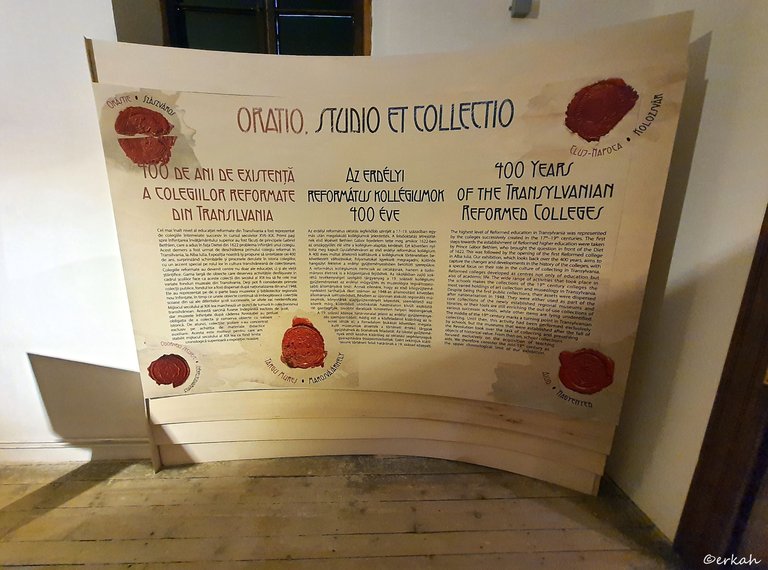
The idea of creating a collage was first brought up by Gabriel Bethlen (Bethlen Gábor in Hungarian) in 1622.
Gabriel Bethlen (Hungarian: Bethlen Gábor; 15 November 1580 – 15 November 1629) was Prince of Transylvania from 1613 to 1629 and Duke of Opole from 1622 to 1625. He was also King-elect of Hungary from 1620 to 1621, but he never took control of the whole kingdom. Bethlen, supported by the Ottomans, led his Calvinist principality against the Habsburgs and their Catholic allies. source
Back then there were no public schools, like there are today. Most if not all the schools were religious units, run by churches and teaching was done by priests. Only the well off and the rich had the chance to go to school. I'm using the words go to school and not study, because these are two different things. You see, those who were really gifted and could have excelled were poor and had no one to fund their studies. The well off and the rich were forced to go to school, but many didn't have the necessary mental capacity to study, or were simply not interested. Then there were those who were lucky to get a patron or a sponsor as we call these today to fund heir studying. Kids these days don't even realize how lucky they are to be able to study in public funded schools, for free.
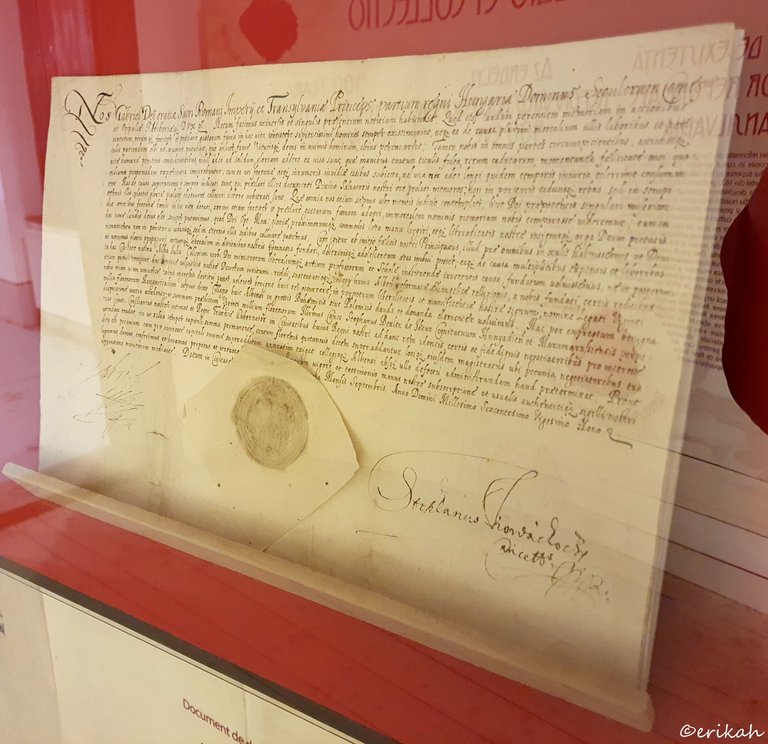
This is a copy of the original document written and signed by Gabriel Bethlen, submitted to the parliament, in which he initiates the foundation of collages. It is written in Latin as far as I can tell. This document is 402 years old.
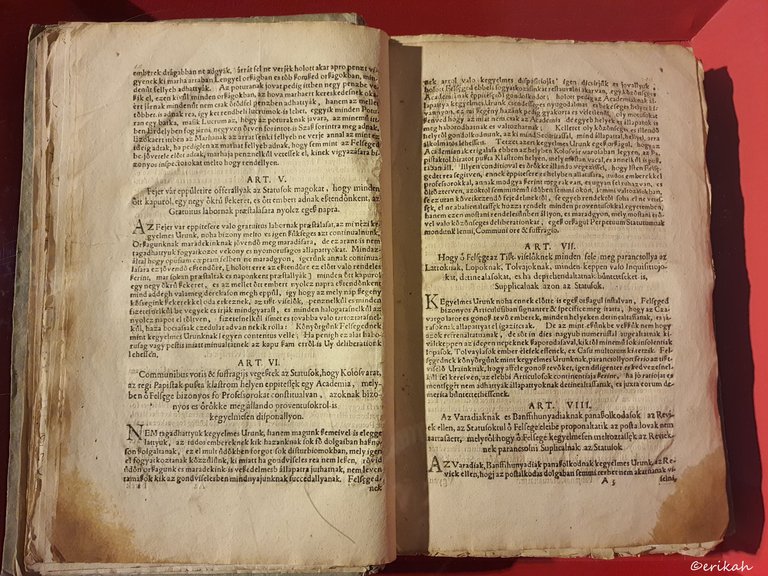
This is an old religious book, written in Hungarian, but it is an old version of the language, what is not in use anymore. I don't know how old the book is, but could be a few centuries old.
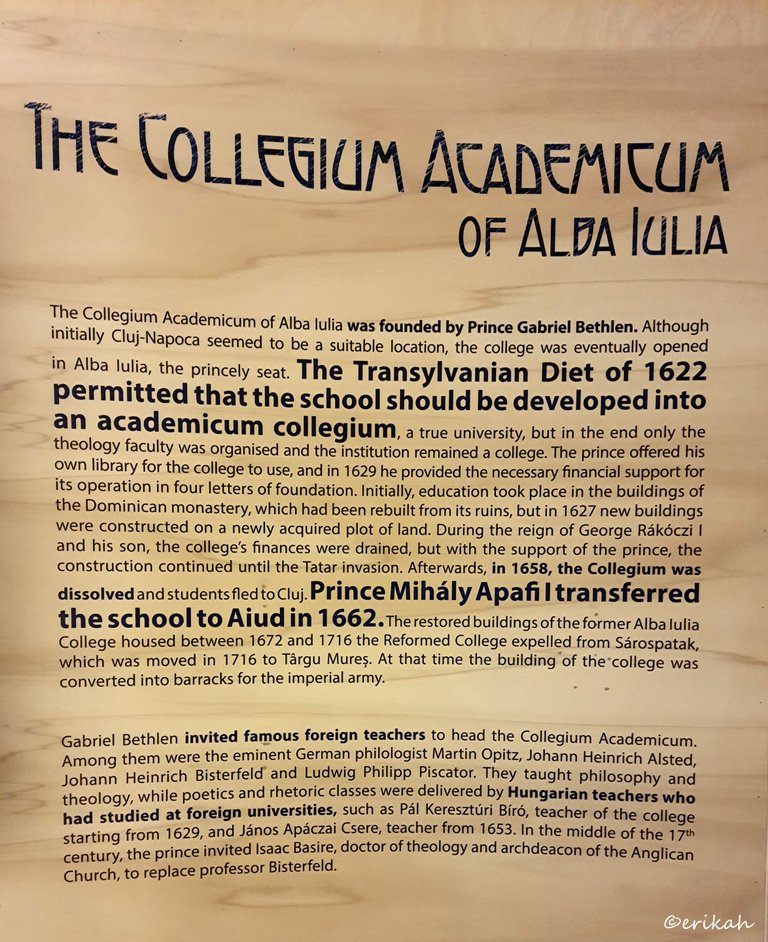
What I love about these exhibitions is the way they display the information that is needed in order to understand and learn about those times. You have the narrative on these boards and I think it's way better than audio guides. Obviously it is easier to just listen to the story, vs reading, however you can't record the audio material, but you can take photos of these boards and read then afterwards as well. It's an excellent way in my opinion.
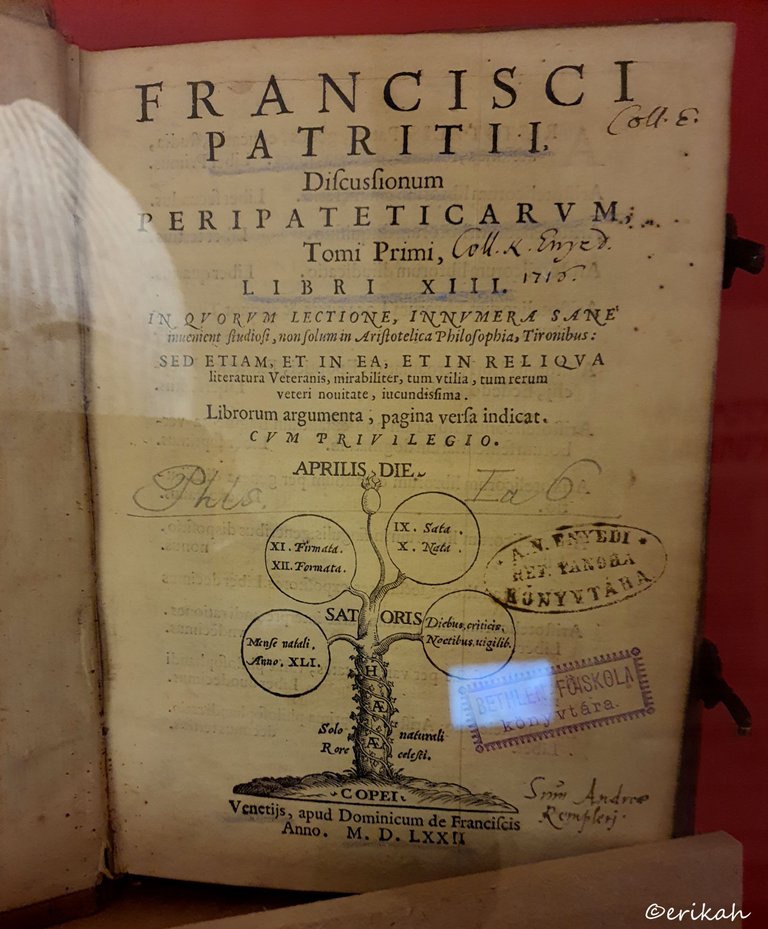
Would have loved to take this book in my hand and turn a few pages, although I don't think I would have had the heart to do it. The book is from MDLXXII. This is me having fun and don't tell you what that means :) You have to figure it out yourself what year is that and let me know in a comment :) These old books are treasures and protected as well. All of them were under glass, which is a requirement to protect them.
What I love about these books is the drawings. There were no images back then as photography came later, but the drawings were lovely.
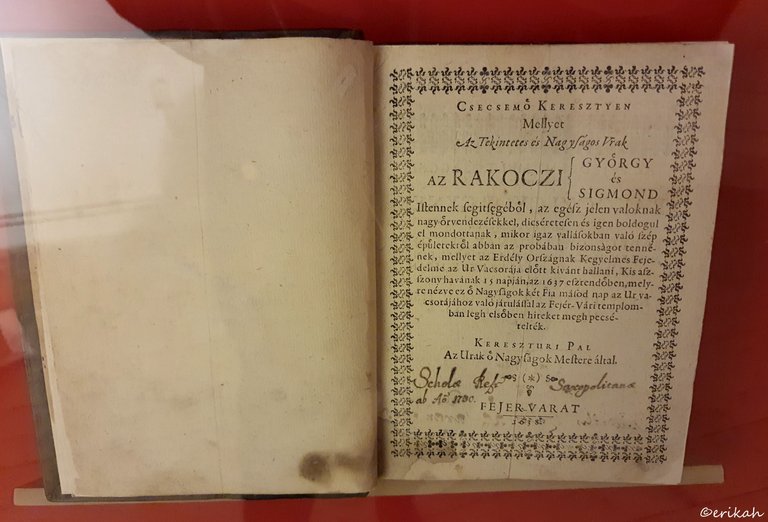
A Hungarian book from 1638. To be honest, I've never seen such a writing. The accents used are totally new to me and some letters are written in a very strange way.
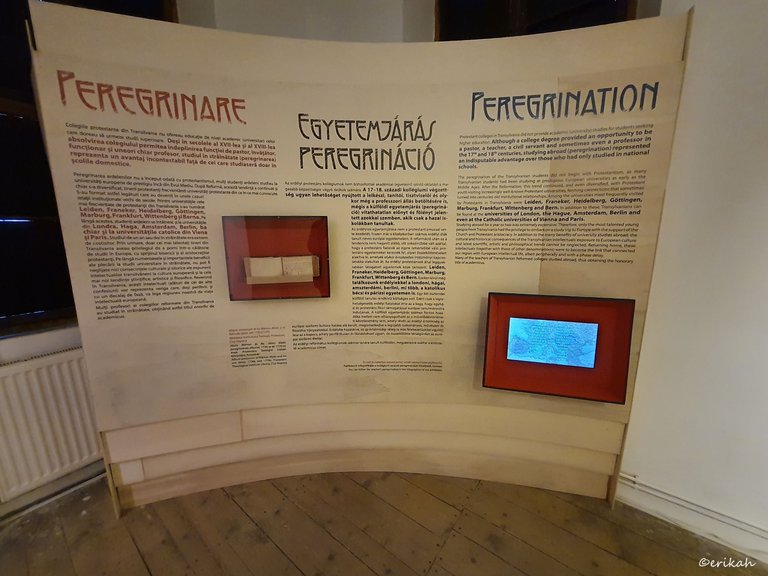
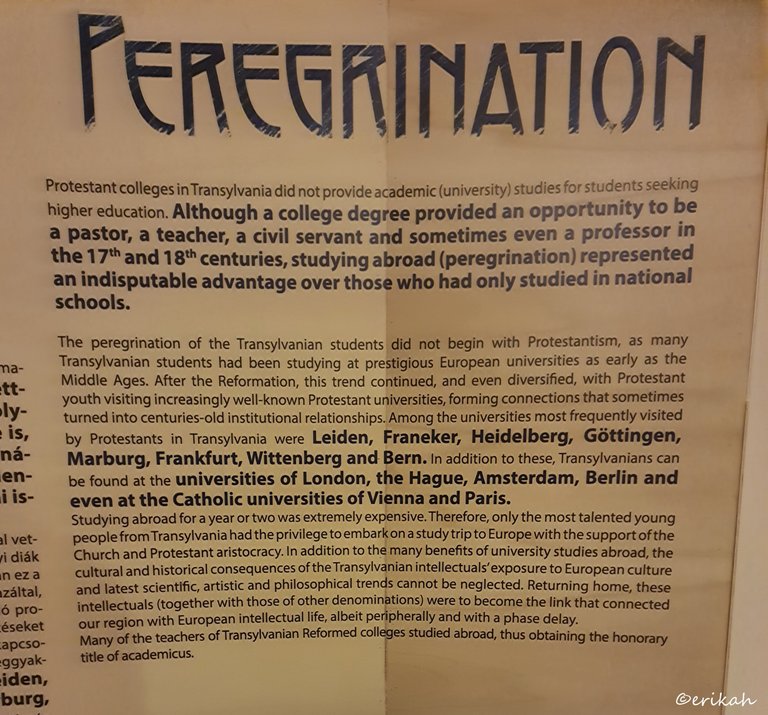
It's interesting to learn that studying abroad had a lot of advantages, or, coming home after studying abroad, to be precise. Those who returned home and started teaching, brought with them new knowledge, which most likely was much appreciated. We live in a digital era, information can travel at the speed of light and you can take courses at the most prestigious universities at the other end of the world, without leaving your home, but back in those days people had to make a lot of sacrifices in order to study.
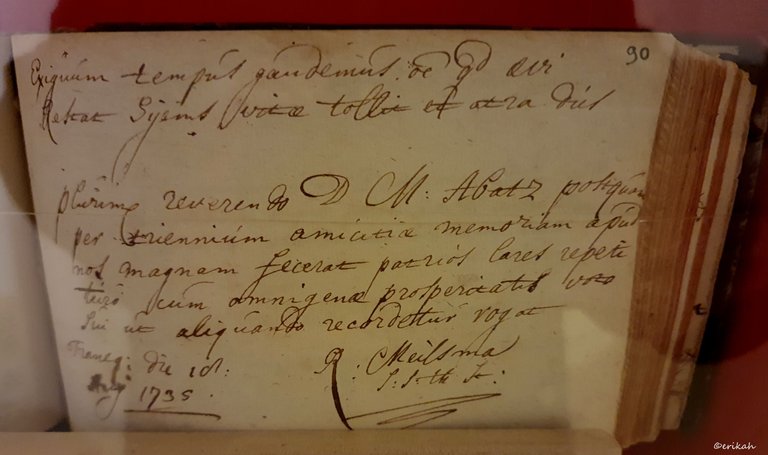
Notes from 1735. Simply unbelievable. Seems Latin, but can't be sure.
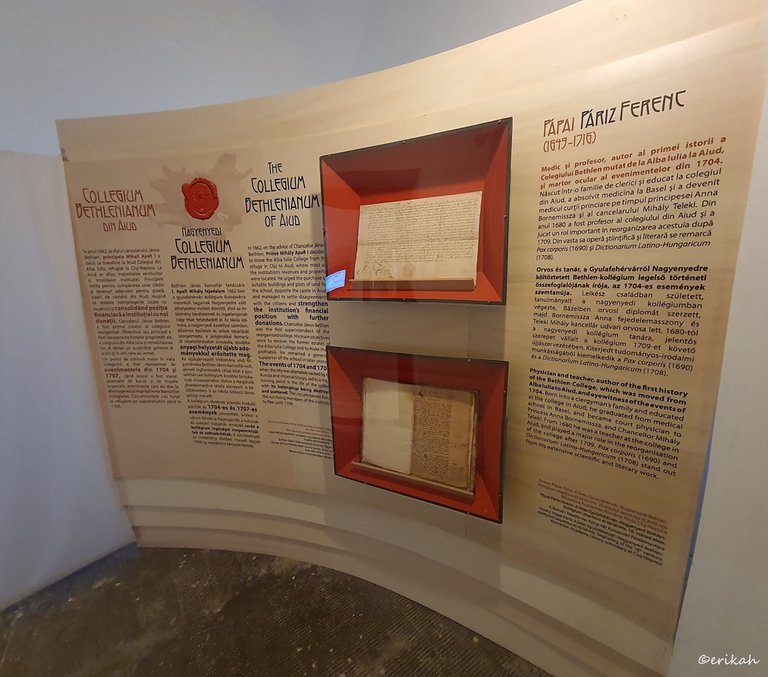
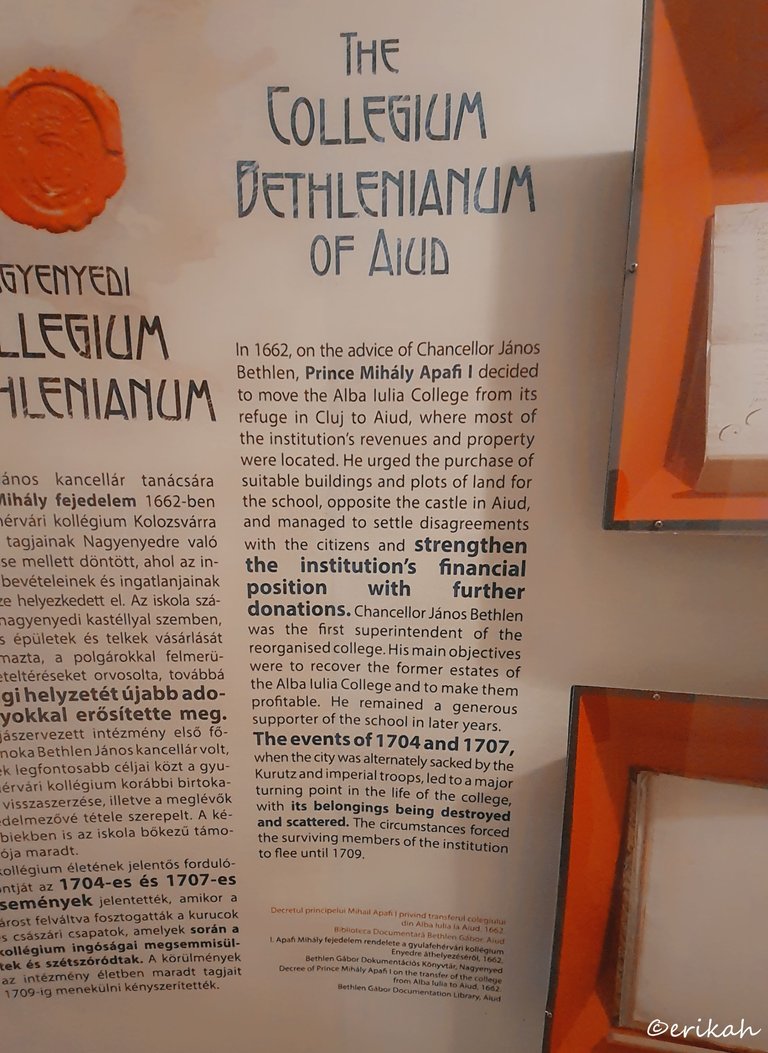
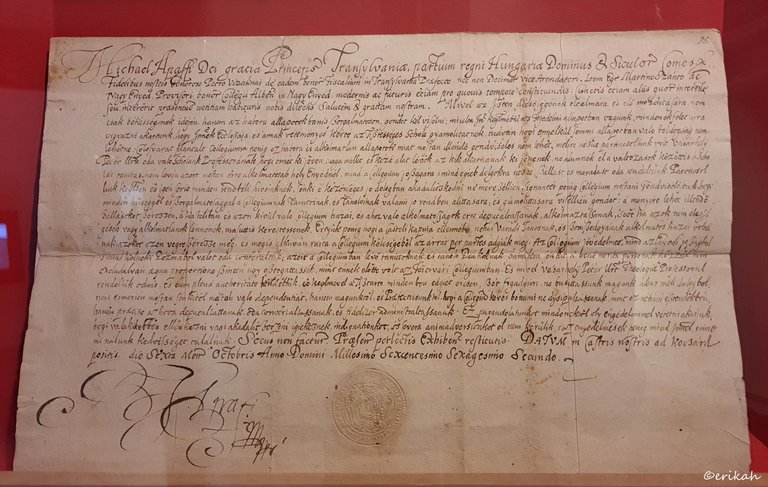
Another document, a few hundred years old, written in Latin. What fascinates me is the amazing handwriting. If you have a closer look, you can see, there are no mistakes made and the lines are straight, but the paper was not lined, they did not know what a lined paper is as there was none back then. Now ask yourself, could you write such a nice document by hand? I would be extremely nervous :) Handwriting is on its way of disappearance, unfortunately.
The funny thing is, there's a date at the bottom of the document, written with letters, in Latin. I think it's 1662, but can't be sure. If your Latin is better than mine, tell me what year it is.
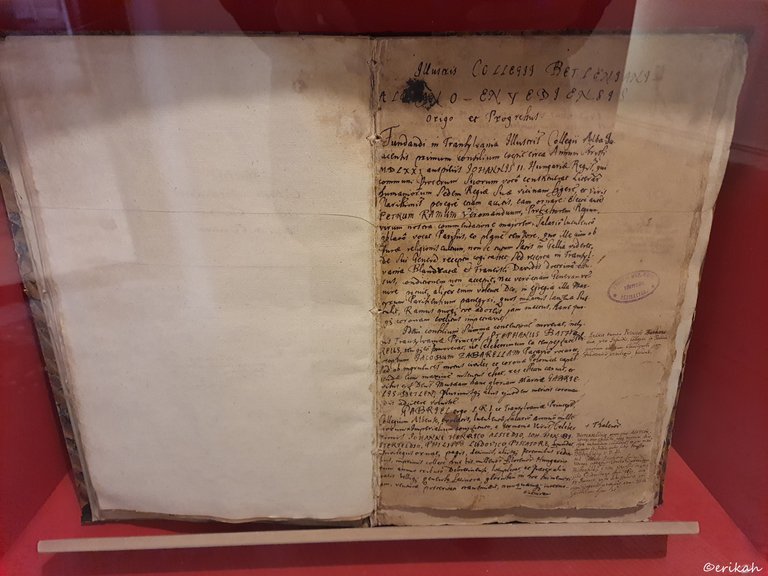
This will remain a mystery. All I can say it's written in Latin and it says something about Hungary, but that is all. Would take me years, even decades to translate such a text. Good thing that's not my job :)
While I was editing these photos and writing my post, was thinking what I would do if I'd wake up in 1600 - 1700. Even though my education level is net superior of those that lived back then, I would still be the dumbest due to the differences between their and my educations. So I guess I'm grateful (again) that I live now.

If you're a newbie, you may want to check out these guides:
- Communities Explained - Newbie Guide
- Cross Posting And Reposting Explained, Using PeakD
- Hive Is Not For Me
- How To Pump Your Reputation Fast - Newbie Guide
- Tips And Tricks & Useful Hive Tools For Newbies
- More Useful Tools On Hive - Newbie Guide
- Community List And Why It Is Important To Post In The Right Community
- Witnesses And Proposals Explained - Newbie Guide
- To Stake, Or Not To Stake - Newbie Guide
- Tags And Tagging - Newbie Guide
- Newbie Expectations And Reality
- About Dust Vote And Hive Reward Pool, by libertycrypto27
